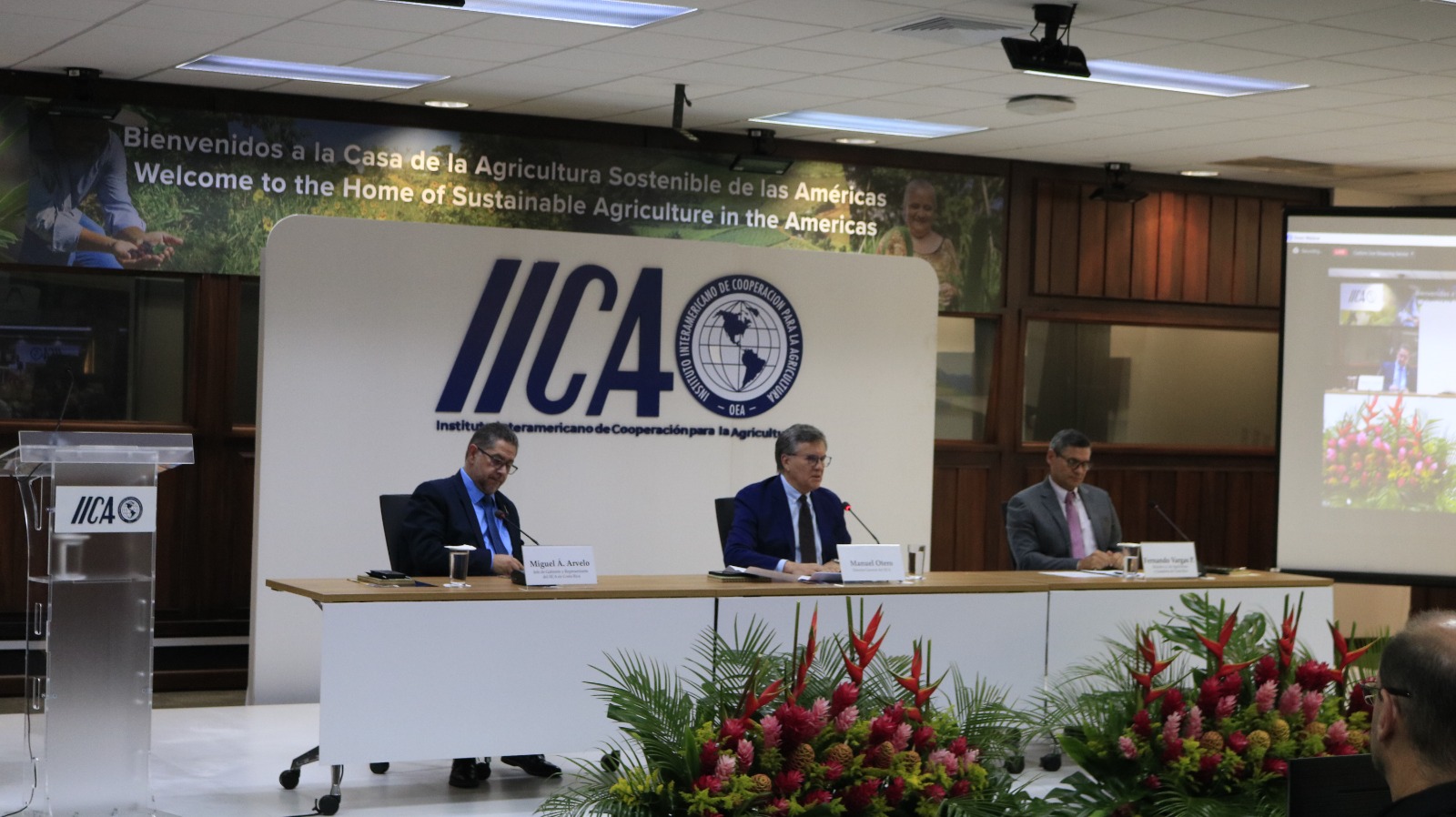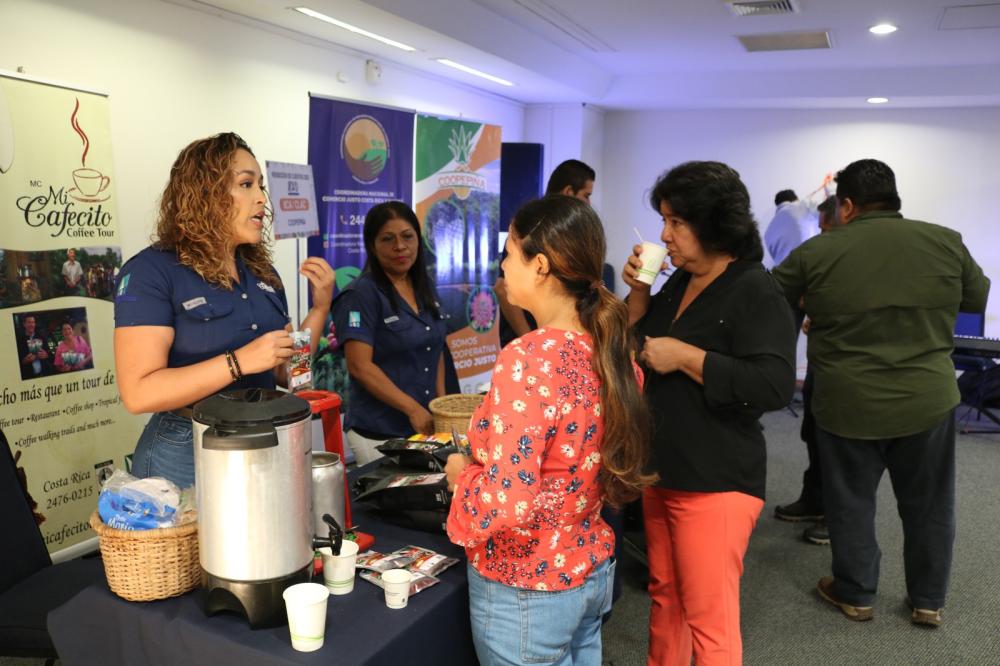In 2022, the technical cooperation delivered by the Inter-American Institute for Cooperation on Agriculture (IICA) in Costa Rica directly benefited close to 2,000 producers in that country and multiplied the Central American nation’s contribution to the hemispheric agency by 25 times. This information was shared during a presentation delivered to Costa Rican agricultural authorities, producer organizations and private sector partners, among others.

San Jose, 19 October 2023 (IICA) – In 2022, the technical cooperation delivered by the Inter-American Institute for Cooperation on Agriculture (IICA) in Costa Rica directly benefited close to 2,000 producers in that country and multiplied the Central American nation’s contribution to the hemispheric agency by 25 times. This information was shared during a presentation delivered to Costa Rican agricultural authorities, producer organizations and private sector partners, among others.
The IICA Delegation in Costa Rica invested close to USD 2.28 million in 21 technical cooperation projects, as reported during the event, which was attended by Fernando Vargas, Deputy Minister of Agriculture and Livestock of Costa Rica; Manuel Otero, Director General of IICA; and Miguel Arvelo, IICA Representative in that country.
Among the most noteworthy projects implemented by IICA in Costa Rica are one to transfer cleaner, more efficient energies to rural communities, with the support of the Arauclima Fund of the Spanish Agency for International Development Cooperation (AECID), and the Adapted Agroforestry Systems for the Central American Dry Corridor (AGRO-INNOVA) project, funded by the European Union.
Additionally, over the past year, female rallies organized by IICA’s Community Innovation Lab (LINC) or FabLab, in coordination with the Ministry of Science, Innovation, Technology and Telecommunications (MICITT), have provided more than 700 women with training in technological topics applied to agriculture.

Deputy Minister Fernando Vargas considered that the work between the Ministry of Agriculture and Livestock (MAG) of Costa Rica and IICA is fostering the development of a new generation of young people who can revitalize and increase innovation in the agriculture sector. He described IICA’s contribution to production chains as “invaluable”.
“We must carry on with this task. The projects that IICA is reporting on today are generating the requisite tools to continue along this path of empathy towards the agriculture sector”, emphasized Vargas.
Manuel Otero underscored the fact that the Institute continuously prioritizes the needs of the agriculture sector and drives agricultural development and transformation through its technical cooperation agenda.
“This accountability seminar allows us to pause and take stock of what we’re doing, how we’re doing it, and with whom. We carry out our work in the most self-critical manner, always seeking excellence in our technical cooperation”, he added.
Miguel Arvelo, IICA Representative in Costa Rica, pointed out that agriculture in the region is undergoing a generational shift that makes the provision of technical support to the sector more challenging. Therefore, he noted that innovation must chart the way forward.
“The schools for agricultural leaders that we developed in Costa Rica have been replicated in other Central American countries and in the Dominican Republic. This demonstrates that youth are taking the lead in this activity, which is of the utmost importance for food security and the economy of this country”, said Arvelo.
Partners and beneficiaries of the technical cooperation delivered by the IICA Delegation in Costa Rica, including 18 groups of producers and agribusinesses, participated in a fair as part of the event.
Among them were cocoa producers who were involved in the IICA-organized Puro Cacao Gastro Tour project, which provided innovative culinary experiences in several restaurants throughout the country over the course of two months; and the Piel Marina biomaterials business, comprised of 15 women from Puntarenas (on Costa Rica’s Pacific coast), who displayed their articles made from fish skin and waste fishing materials.
More information:
Institutional Communication Division.
comunicacion.institucional@iica.int











